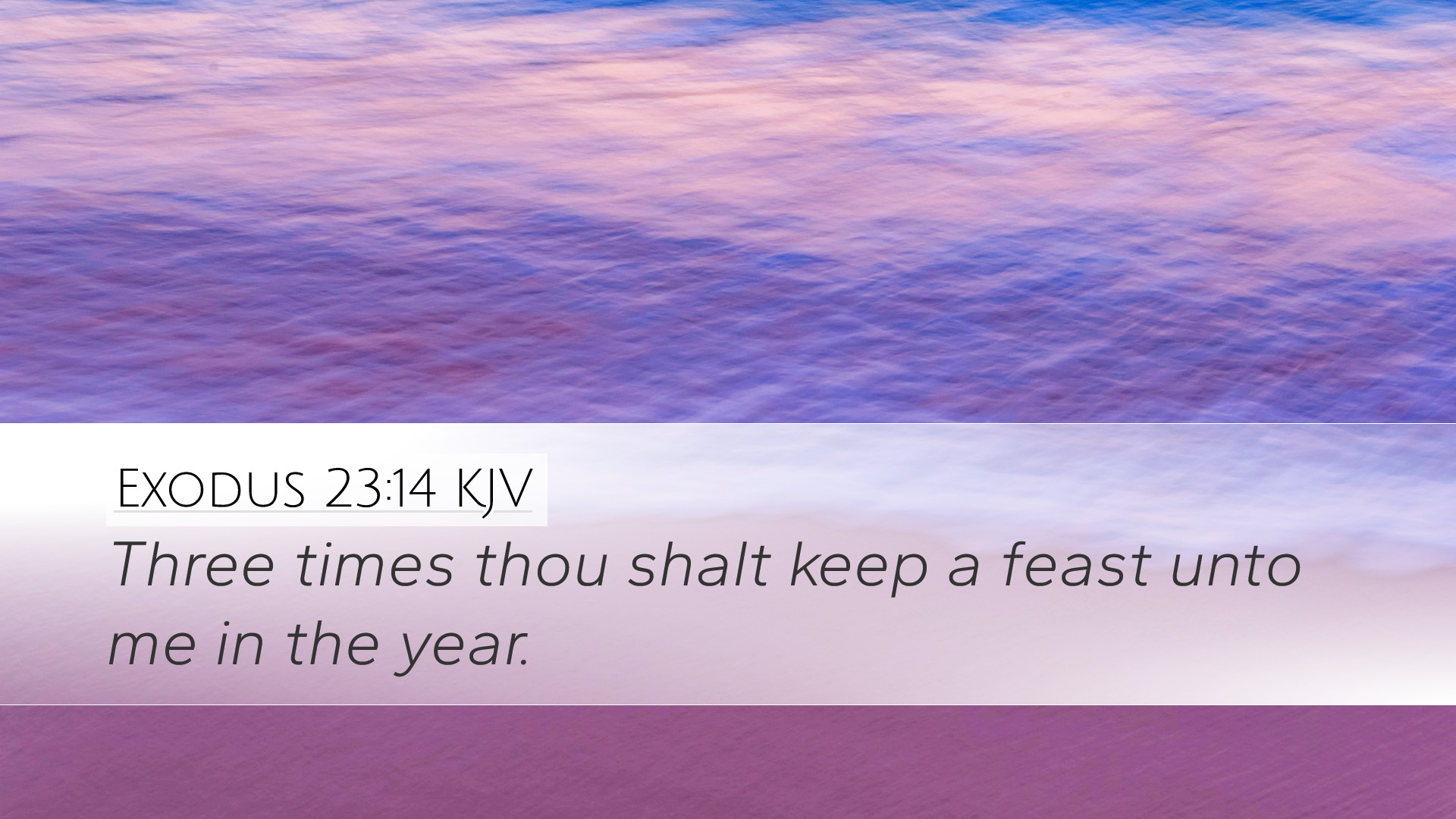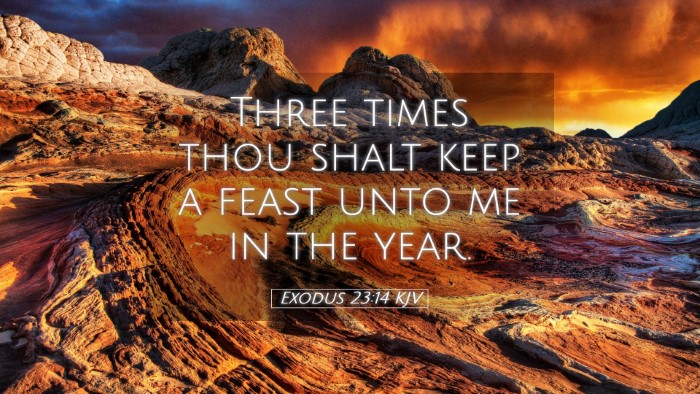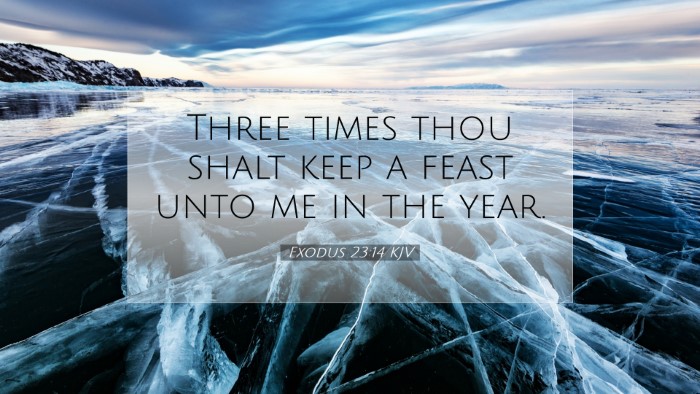Commentary on Exodus 23:14
Verse Text: "Three times thou shalt keep a feast unto me in the year."
Introduction
This verse is a part of God's instruction to the Israelites regarding the observance of feasts, which serve as critical periods for worship, community, and remembrance of God's providence. Scholars like Matthew Henry, Albert Barnes, and Adam Clarke offer profound insights into the spiritual significance of these feasts in the lives of the faithful.
Significance of the Feasts
Matthew Henry emphasizes that these feasts are not merely cultural practices but are divinely instituted commemorations. They provide opportunities for the people to gather, celebrate, and reflect upon God's deliverance and covenant promises.
Albert Barnes highlights the agricultural and historical significance of these feasts, noting that they were times for the Israelites to bring their offerings to God, which fostered a sense of communal responsibility and gratitude.
Adam Clarke extends this thought by presenting the feasts as occasions for teaching and spiritual renewal. Each feast is a chance to recount the narrative of God’s faithfulness, thereby instilling faith within the community and future generations.
Three Annual Feasts
The three feasts required to be observed are:
- The Feast of Unleavened Bread - This feast commemorates the Exodus and highlights the themes of purity and deliverance from sin.
- The Feast of Harvest (or Weeks) - Celebrated 50 days after Passover, it acknowledges God's provision and the first fruits of the harvest.
- The Feast of Ingathering (or Tabernacles) - This is a harvest celebration, recalling God's guidance and providence during the wilderness journey.
Theological Implications
Matthew Henry indicates that the command to keep these feasts emphasizes the necessity of regular worship and devotion to God. It reminds believers of their dependence on God and the need for communal reflection on His works.
Albert Barnes argues that through these feasts, the Israelites affirmed their identity as God's chosen people—called to live in a way that honors their relationship with Him.
Adam Clarke adds that the feasts collectively represent the fullness of the Christian life, which is characterized by celebration, remembrance, and anticipation of God's ultimate deliverance.
Lessons for Today
The implications of Exodus 23:14 extend beyond historical Israel. For modern believers, these feasts call for intentional ritual within the life of the community. Pastors and spiritual leaders must recognize the value of setting aside time for corporate worship, acknowledgment of God’s work in their lives, and shared community experiences.
Furthermore, just as the feasts were cyclical and integral to the Israelite calendar, contemporary worship should incorporate rhythms of reflection and celebration, ensuring that God's faithfulness is a recurrent theme in the life of the church.
Conclusion
Exodus 23:14 serves as a powerful reminder of the importance of regular, intentional worship in the life of faith. Through the insights of Henry, Barnes, and Clarke, we glean the necessity of communal feasts to remember God’s faithfulness, to worship Him duly, and to encourage one another in the faith journey.


